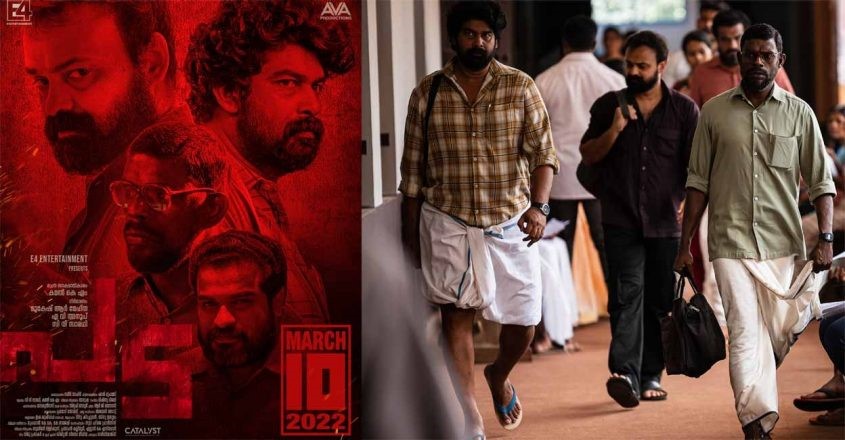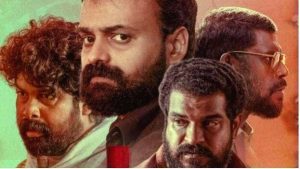
'Pada' is realistic: Abducted collector on recreation of Ayyankali Pada hostage drama

The recently released Malayalam film Pada, directed by Kamal KM, has not only received well in Mollywood, but has drawn considerable interest in Tamil Nadu. The film has struck a deep chord among Tamil film enthusiasts, who cannot forget the dramatic kidnapping of Alex Paul Menon, a bureaucrat from Tamil Nadu, who was then serving as a collector of Sukma district in Chhattisgarh, by Maoists.
Though Pada was released on March second week, it was overshadowed by Ajith’s action thriller, Valimai, which was released a week before. But, the film gained traction, after it hit the OTT platform, Amazon Prime, a couple of days ago.
Based on a true incident that happened in the year 1996 in Kerala, Pada’s plot centres around a district collector, who is held hostage by a group of people. Their only demand is to repeal the recent amendment made in the Adivasi Land Act. Named after Ayyankali, Kerala’s social reformer, the pada (Malayalam for army), which consists of four individuals, hold the collector hostage for nearly 10 hours. Is this rebel gang able to achieve their demand and is the government able to save the collector make up the rest of the plot.
‘Performance as a form of protest’
In a conversation with The Federal, Pada director Kamal KM recalled that the real-life incident had happened on October 4, 1996, when he was a journalism student. “The teleprinter in our classroom had the news about the incident. At that time, we discussed it, just like any other news in our class. But in the following days, we realised how the protest carried out by the members of Ayyankali Pada was so unique,” remembers Kamal.
The members used toy guns and duplicate bombs and the protest was carried out as if they were staging a play, he added. “The members used the theatre, a performing art as a medium of protest. In 2018, when I was thinking of a script this incident came to my mind. What inspired me about this episode was the performative nature of the protest,” he said, adding that this protest by Ayyankali Pada can be considered as a part of renaissance movement that was sprouting all over Kerala after 1900s.
While writing the screenplay, Kamal met with the real-life characters like the members of Ayyankali Pada, the police officers, the collector who was held hostage, the mediators and the district judge who brought an end to the hostage-drama.
Also read: Sitarama Raju & Komaram Bheem: The real-life heroes behind Rajamouli’s ‘RRR’
“In real life, the collector WR Reddy, who was held hostage hailed from Andhra Pradesh. But I have shown him as a Marathi guy in the film. Similarly, I have shown the chief secretary (played by Prakash Raj) as a Tamil and the superintendent of police as a Gujarati. I did this to give the film a pan-India colour,” he said.
‘Collector is not an individual but an institution’
WR Reddy, the then collector of Palakkad, who was held hostage by Ayyankali Pada, was all praise for the film. The film has effectively recreated the past as realistically as possible, he told The Federal.
“The purpose of the film is to show the struggles of tribals. My case was just incidental. Kamal has done a good job,” pointed out Reddy.
Born in Abdullapuram, a village in Andhra Pradesh, Reddy had completed his post- graduation and doctoral research in the field of agriculture. Unable to continue his research abroad due to financial constraints, he thought of writing the civil services exams. In his first attempt he cleared IPS and in the second attempt he cleared the IAS. A 1986 batch officer, his first posting was at Alleppey, Kerala.
“Palakkad district has a high number of tribals. If it was not me, whoever in the post would have been taken hostage. So, it’s not as if the members of Ayyankali Pada chose me in particular,” he said. He was held hostage by Ajayan Mannur, Vilayodi Sivankutty, Kallara Babu and Kanhangad Ramesan.
It was the time the LDF was in power and EK Nayanar was the chief minister. The incident happened a week ahead of a by-election and there was pressure mounting on the state government to save the collector.
Reddy did not experience any trauma after the incident. But what pained him a lot was the perception in the government that he was part of a bigger conspiracy. “I was criticised for acting according to the abductors instead of opposing them. They thought that I brought disrespect to the government. Since they wanted to save their face, I was put in a corner,” said Reddy.
He pointed out that though the abductors claimed in the end that they used toy guns and other weapons. Nobody had called their bluff and neither were the bags checked when they had entered the collector’s office.
Also read: Kollywood raring to go: What next for Tamil superstars? Here’s a lowdown
The abductors too treated him with respect except for some verbal spats. However, there was always the danger that they would physically assault him. “I cooperated with them because I wanted to preserve the dignity of the institution. The collector is not an individual but an institution. An institution should not run from the problem. So, I didn’t try to escape or overpower them. If I had tried, there could have been bloodshed. It was not only me but the collectors of Kerala in general are down-to-earth people. They don’t visualise the blood bath. They are with the people and want to discuss the problems of the people on the ground,” he said, adding that he had no regrets about that incident.
“It is part and parcel of our work. And the incident never diminished my enthusiasm to work for the downtrodden,” said Reddy.
Following the incident, he was transferred out of Palakkad within a month’s time and posted in Kollam. In 2002, he was out of Kerala and started serving in the Union government’s programmes. His last assignment was director general, National Institute of Rural Development and Panchayati Raj, after which he retired in 2021 and now resides in Hyderabad.
According to Pada director Kamal, it was not only Reddy who had borne the brunt of the government. The district judge Rajappan Achary, who had acted as a mediator on the request of Ayyankali Pada members, was also at the receiving end. His promotions were cut down and he became paralysed and is bedridden for the past few years, claimed Kamal.

‘Only shock but no fear’
IAS officer-turned-filmmaker Gnana Rajasekaran who served as a collector in various districts of Kerala between 1983 and 2010, said that during the hostage drama, fellow civil servants were shocked since that was the first time a collector had been held hostage.
According to Rajasekaran, Kerala is known for such protests. However, until then, the labourers and public were staging protests inside the offices of the government higher officials. But that was the first time the protestors had taken a collector hostage, he pointed out.
So, there was a shock but there was no fear. “This is because civil servants were used to facing such protests every day. They knew that there would be no untoward incident because across the state, the collectors were always close to the people. People have always trusted collectors instead of ministers,” he said.
According to Rajasekaran and Reddy, the conditions of Adivasis have not changed even today. “Unless the current tribal generation are given the right education, there will be no development,” felt Reddy. Rajasekaran, on the other hand, said that with no powerful organisation lobbying for them, tribal welfare is always viewed as secondary.
‘I want to forget the incident’
Reacting to the film, Alex Paul Menon told The Federal that he prefers to be remembered for the good works he has done rather than over his kidnapping 10 years ago.
“Every job has its own occupational hazard. The atomic scientists know that there would be an occupational hazard in the form of radiation while they work in atomic power stations. Similarly, the civil servants too have occupational hazards in the form of protests, gherao, abduction, etc.,” he said, adding that they were trained to prepare for such hazards.
“How well a civil servant acts according to the situation lies in how he or she uses his or her common sense. It is unfortunate that the officials like me who have undergone such hazards are remembered only for being kidnapped and held hostage. Rather, we want to be remembered for the good work we have done,” he said.

